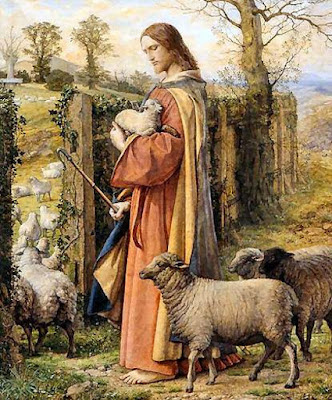After he recovered, he returned to his aunt, who had raised him, and he nursed her in her final illness. After his aunt died, Bernardine started to think about where his life should be going. He was the son of a noble family, but he had been orphaned at seven and raised by the aunt whom he had cared for.
As a young man, he hated indecent talk so much that he would blush when he heard it. Even his schoolmates hesitated to make him so uncomfortable. One day in the marketplace, a man thought it would be a great joke to tease Bernardine, and in a public place he started to talk to Bernardine in a shameful way. He was surprised when Bernardine slapped him in the face. The man slunk away, shamed in front of the very crowd he'd been trying to impress.
Bernardine, who had come to Siena to study, threw himself into prayer and fasting to discover what God wanted him to do. One might have expected him to continue his work with the sick but in 1403 he joined the Franciscans and in 1404 he was ordained a priest.
The Franciscans were known as missionary preachers, but Bernardine did very little preaching because he had a very weak and raspy voice. For twelve years he remained in the background, spending his time in prayer. At the end of that time, he went to Milan on a mission. He was told by his superior to preach, but he hesitated, because his voice was so weak. But when he got up to preach his voice was strong and commanding, and his words were so convincing that the crowd would not let him leave unless he promised to come back.
Thus began the missionary life of this friar, who came to be called a “second St. Paul.” He crisscrossed Italy on foot, preaching for hours at a time, several times a day. We are told he preached on punishment for sin as well as reward for virtue but focusing in the end on the mercy of Jesus and the love of Mary. His special devotion was to the Holy Name of Jesus. In fact, even when it was clear he was dying, he preached on fifty consecutive days. He died in 1444 when he was almost 64 years old.
Bernardine, who had come to Siena to study, threw himself into prayer and fasting to discover what God wanted him to do. One might have expected him to continue his work with the sick but in 1403 he joined the Franciscans and in 1404 he was ordained a priest.
The Franciscans were known as missionary preachers, but Bernardine did very little preaching because he had a very weak and raspy voice. For twelve years he remained in the background, spending his time in prayer. At the end of that time, he went to Milan on a mission. He was told by his superior to preach, but he hesitated, because his voice was so weak. But when he got up to preach his voice was strong and commanding, and his words were so convincing that the crowd would not let him leave unless he promised to come back.
Thus began the missionary life of this friar, who came to be called a “second St. Paul.” He crisscrossed Italy on foot, preaching for hours at a time, several times a day. We are told he preached on punishment for sin as well as reward for virtue but focusing in the end on the mercy of Jesus and the love of Mary. His special devotion was to the Holy Name of Jesus. In fact, even when it was clear he was dying, he preached on fifty consecutive days. He died in 1444 when he was almost 64 years old.
O Lord Jesus Christ, who didst endue St. Bernardine of Siena, thy holy Confessor, with preeminent love of thy most holy Name: we beseech thee, that, by the virtue of his merits and intercession: thou wouldest graciously pour into our hearts the spirit of love towards thee; who livest and reignest with the Father in the unity of the Holy Ghost, ever one God, world without end. Amen.



_-_Nationalmuseum_-_18677.tif.jpg)










